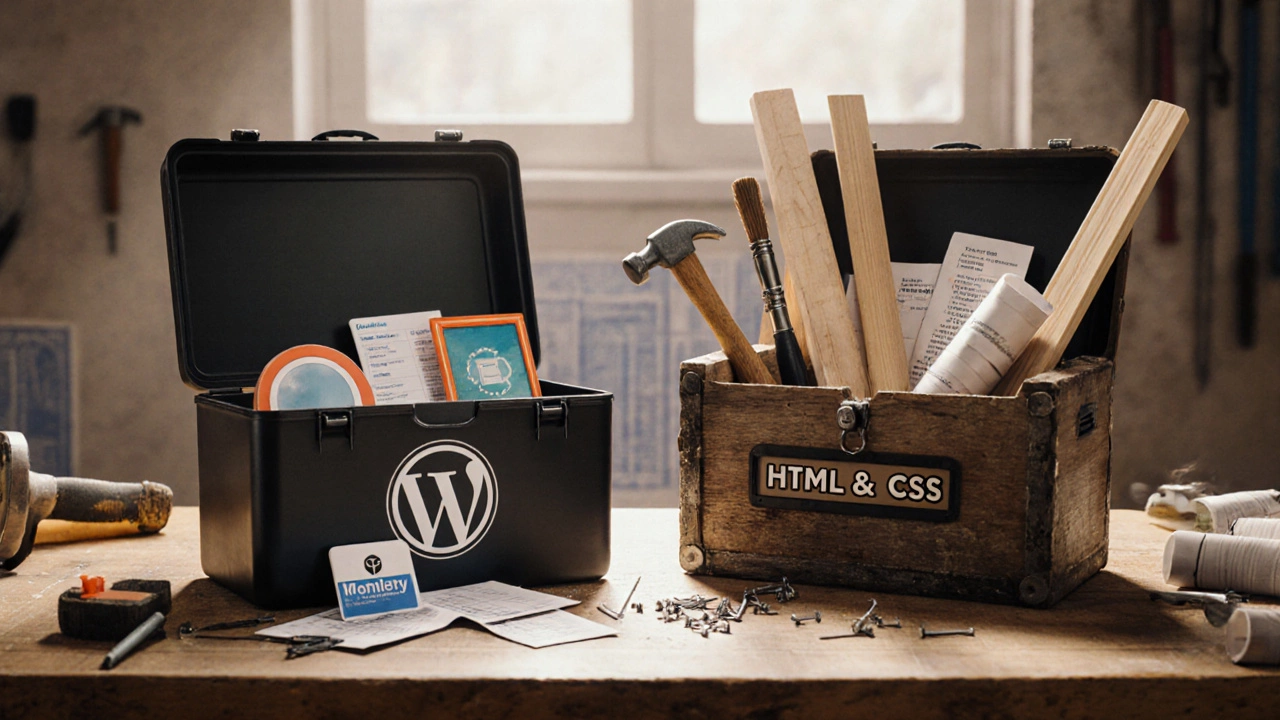
WordPress vs HTML & CSS: Which Is Easier for Building Websites?
24 Oct 2025Explore whether WordPress or hand‑coding with HTML & CSS is easier for building websites, covering speed, cost, flexibility, SEO, and learning curves.
When weighing WordPress vs HTML, the decision between a full‑featured content management system and raw markup for building websites, many developers ask: which path saves time and scales better? WordPress, an open‑source CMS built on PHP that powers over 40% of the web offers themes, plugins, and a visual editor, while HTML, the standard markup language that structures every web page gives you total control but requires manual coding for every feature. WordPress vs HTML encompasses a choice between a dynamic CMS and static markup, each with its own trade‑offs. Picking WordPress means you’ll need some PHP knowledge and rely on a plugin ecosystem, but you can launch a blog or e‑commerce store in days. Opting for pure HTML means you write every line, which boosts performance and security, yet you’ll invest more time for any interactive element.
First, think about the project’s scope. A corporate site that needs frequent content updates, user accounts, and SEO‑friendly URLs typically benefits from a CMS like WordPress. This dynamic approach lets non‑technical staff edit pages through a familiar dashboard. On the other hand, a brochure‑style landing page or a portfolio that rarely changes is a perfect fit for static HTML, where the lack of a database reduces load times and eliminates server‑side vulnerabilities. Second, evaluate skill set and maintenance budget. WordPress requires regular updates, security patches, and occasional plugin compatibility checks. HTML sites have minimal upkeep—just a handful of files to patch when needed. Third, consider performance goals. Static HTML pages can be served via CDN with near‑instant load speeds, while WordPress pages often need caching plugins and optimization to match that speed.
Finally, look at future growth. If you anticipate adding e‑commerce, membership areas, or multilingual support, WordPress provides built‑in APIs and a robust plugin marketplace that can scale with you. If you expect the site to stay simple, a static site generator or plain HTML will keep things lean and easier to host on cheap or even free platforms. The articles below walk through real‑world examples, cost breakdowns, and step‑by‑step guides that help you decide which route aligns with your goals, timeline, and technical comfort level. Dive in to see how each option shapes design, development, and long‑term management.

Explore whether WordPress or hand‑coding with HTML & CSS is easier for building websites, covering speed, cost, flexibility, SEO, and learning curves.